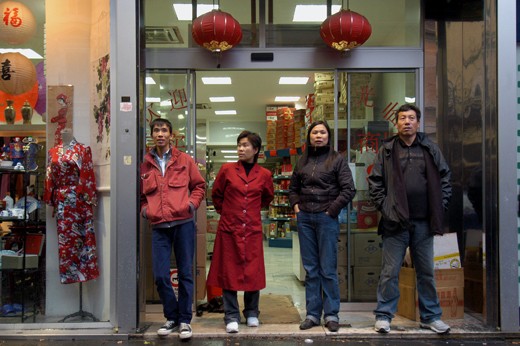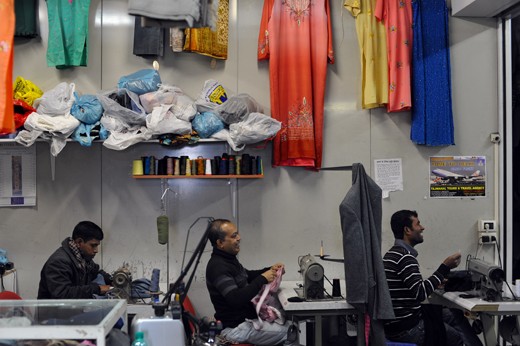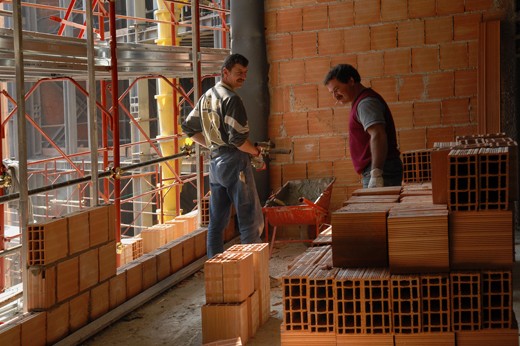abour migration policies were long neglected by European research. This has started changing over the last few years. Here are the links to – what we think are – the most relevant and interesting ongoing or recently carried out work in this field:
-
EU-Asia Dialogue
The EU-Asia dialogue was set up in order to establish a platform for exchange, enhance the understanding of European and Asian policymakers of common current as well as possible future challenges and recommend required policy frameworks. This project was initiated by the European Commission, Konrad-Adenauer-Stiftung, East Asian Institute, European Policy Centre and its associate European Union Centre Singapore. The overall objective is to contribute to the formulation of relevant sustainable development policies for framing a comprehensive and constructive partnership between Asia and the EU.
One of the clusters of the dialogue is “Migration and Integration”. Its’ importance is clear given the movement of people across borders has intensified massively in recent years in Europe and Asia and has proved a big challenge to receiving societies. The dialogue will comprise one policy dialogue and six policy conferences that will be held in Europe and Asia over the course of the three years of the EU-Asia dialogue, and comparative regional studies which draw on existing material to determine best practices in the EU and Asia on governing the inflow of migrants. They will also highlight how governments, as well as civil society and the receiving population, can play a role in promoting a sense of community.
On the European side, the first stage of the process has seen researchers involved in the LABMIGGOV project contributing through research papers on the labour migration systems in the UK, Spain, Sweden, and a comparative overview. At the end of the activity cluster the comparative studies will be published in the form of a book for wide dissemination of the action’s outputs. This book publication will also include policy recommendations which were developed in the conferences.
The book publication: Migration and Integration – Common Challenges and Responses from Europe and Asia
-
LINET – Independent Network of Labour Migration and Integration Experts
The IOM Independent Network of Labour Migration and Integration Experts (LINET) was created in 2009 by the International Organization for Migration in order to provide DG Employment, Social Affairs and Equal Opportunities of the European Commission with expert analysis and advice on economic migration and labour market integration of third country nationals. The network unites experts from 27 Member States of the European Union, Croatia, Norway and Turkey, and aims to support the European Commission in evidence-based decision-making and mainstreaming issues of labour market integration of migrants in achieving Europe 2020 goals
-
EQUALSOC – Network of Excellence funded by the European Union’s Sixth Framework Programme
Network of Excellence funded by the European Union’s Sixth Framework Programme.Project “New Immigrants in the European Countries” (coordinated by E. Reyneri & G. Fullin),
-
PEMINT – The Political Economy of Migration in an Integrating Europe
The PEMINT project’s objective is to understand how decision-making processes concerning labour recruitment by national and multi-national firms lead to different outcomes in terms of labour mobility and international migration under the impact of different welfare provisions, fiscal systems, and regulatory frameworks. Despite the enhanced Europeanised resonance that free movement, welfare and fiscal systems have acquired, these systems remain strongly embedded in national political, institutional and social contexts, creating problems of ‘incomplete European integration’. The project’s objectives can be organised under four headings: implications for labour recruitment; problems of incomplete European integration; individual agency and unexpected outcomes; the impact of emerging institutions of global governance.
-
COMPAS – Centre on Migration Policy and Society
Research Cluster on Labour marketsThis cluster analyses the socio-economics of international labour migration, particularly the economics and politics of labour shortages and the determinants of the demand for migrant labour.
-
ETF – European Training Foundation
Project Migration and skills -
KNOWMIG – Expanding the Knowledge Base of European Labour Migration Policies
KNOWMIG is a 4-year project, running from September 2004 – August 2008. It is being carried out by an interdisciplinary team of 5 researchers, led by Christina Boswell. Initially based at the Migration Research Group, Hamburg, in 2006 the team relocated to the School of Social and Political Studies, University of Edinburgh.The overarching goal of this project is to integrate meso-level insights into the policy debate on labour migration in Europe. In other words, it aims to analyse the role of migrant networks in mediating the impact of migration policy interventions on patterns of mobility and stay.






